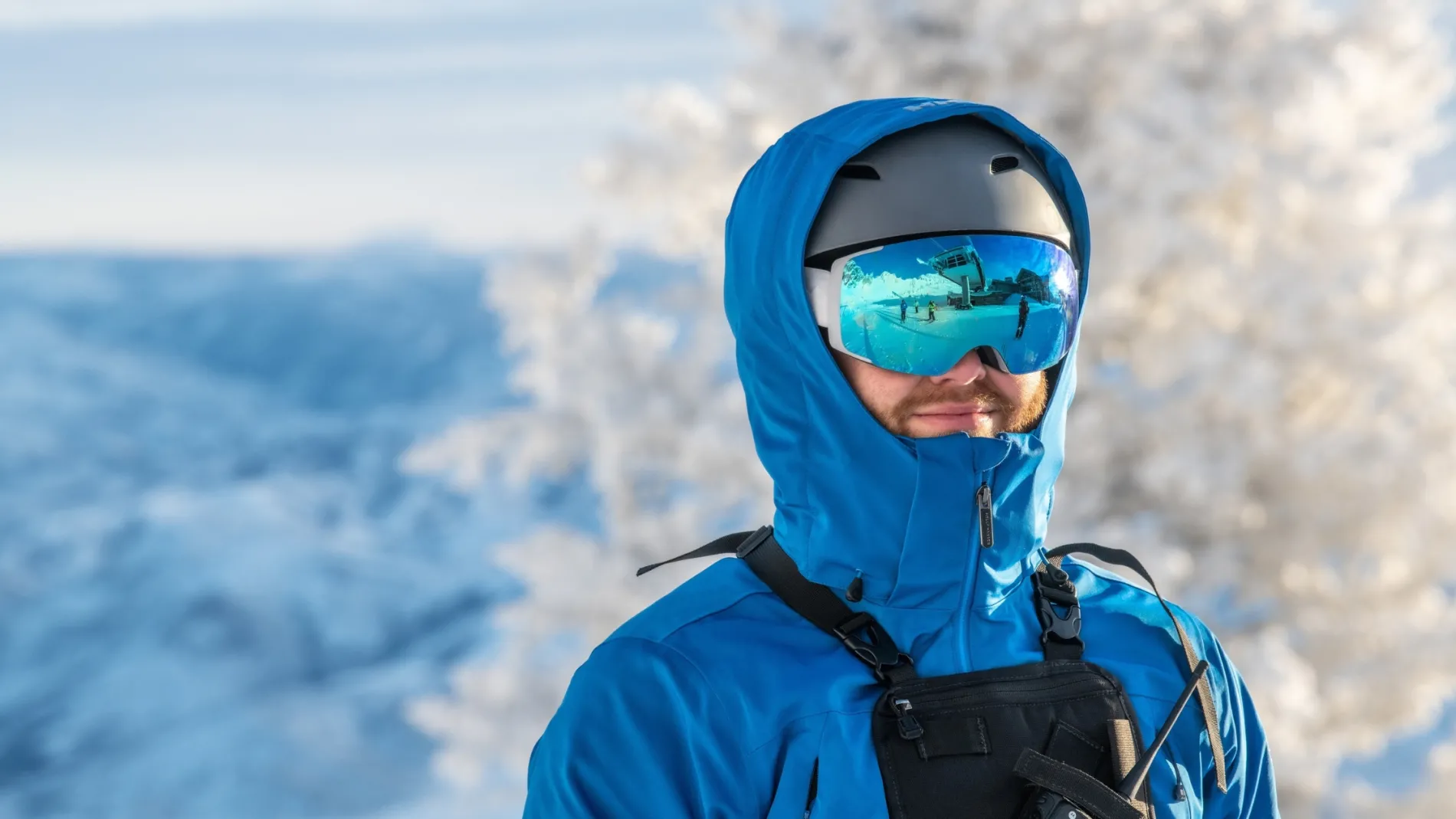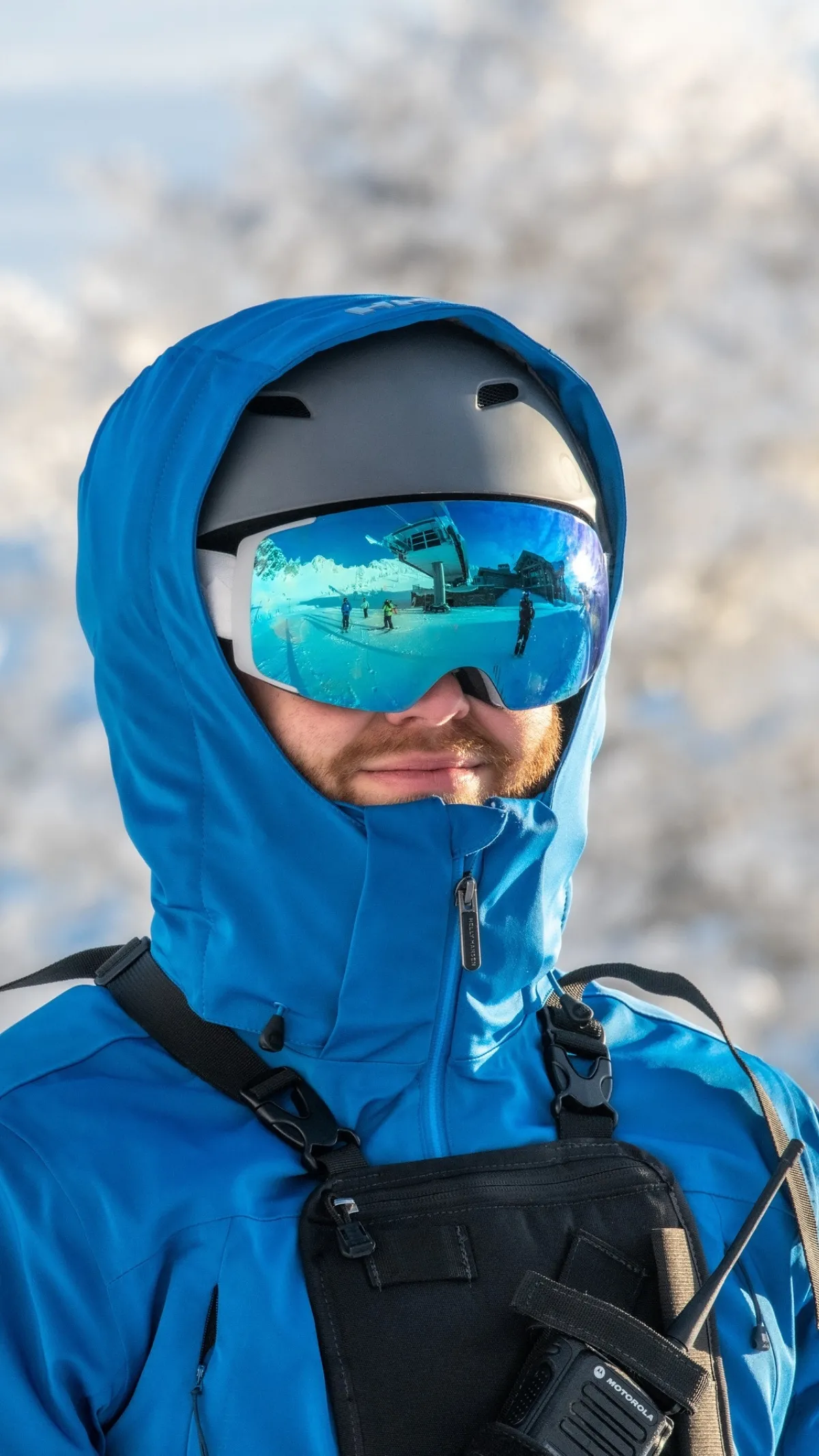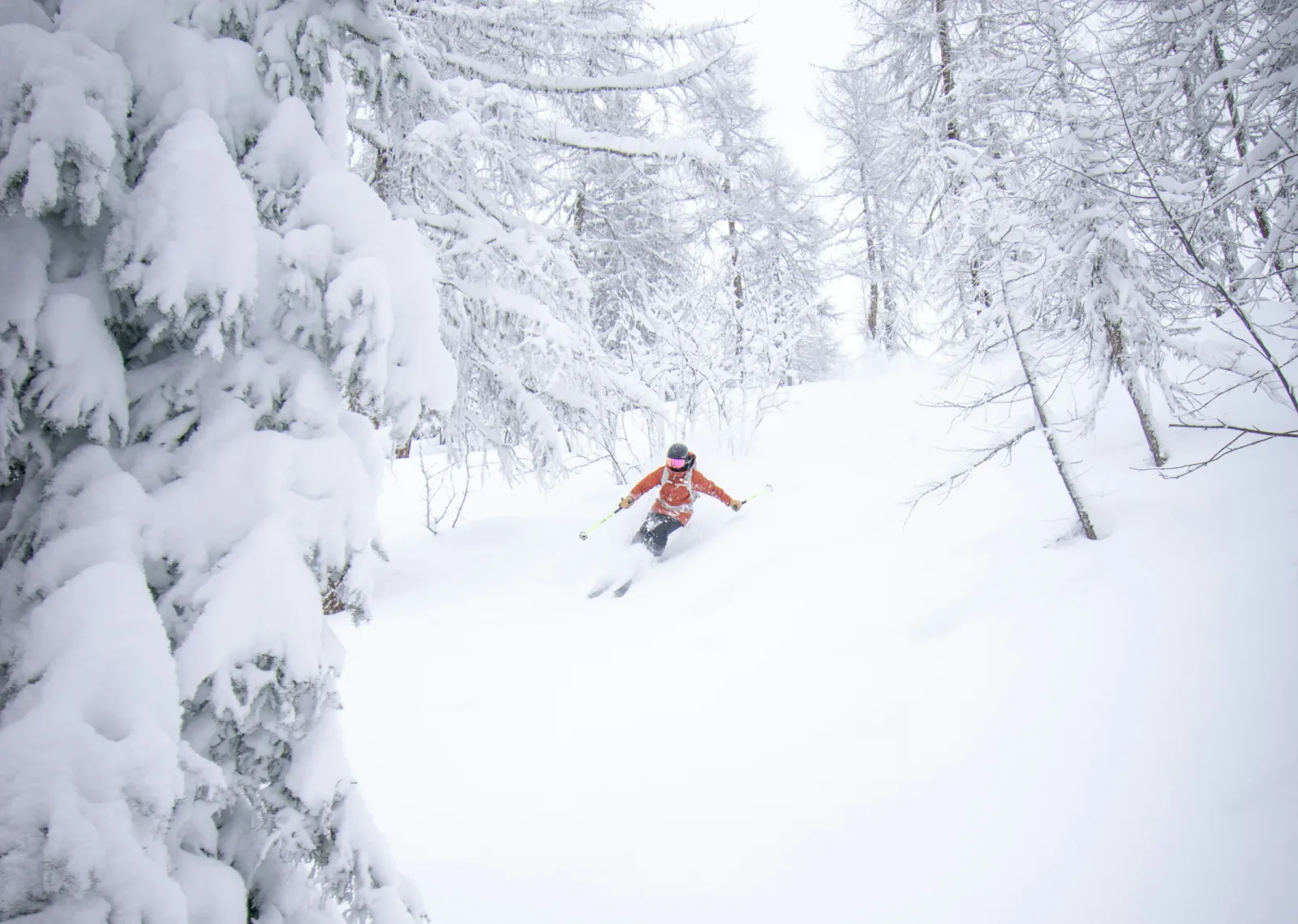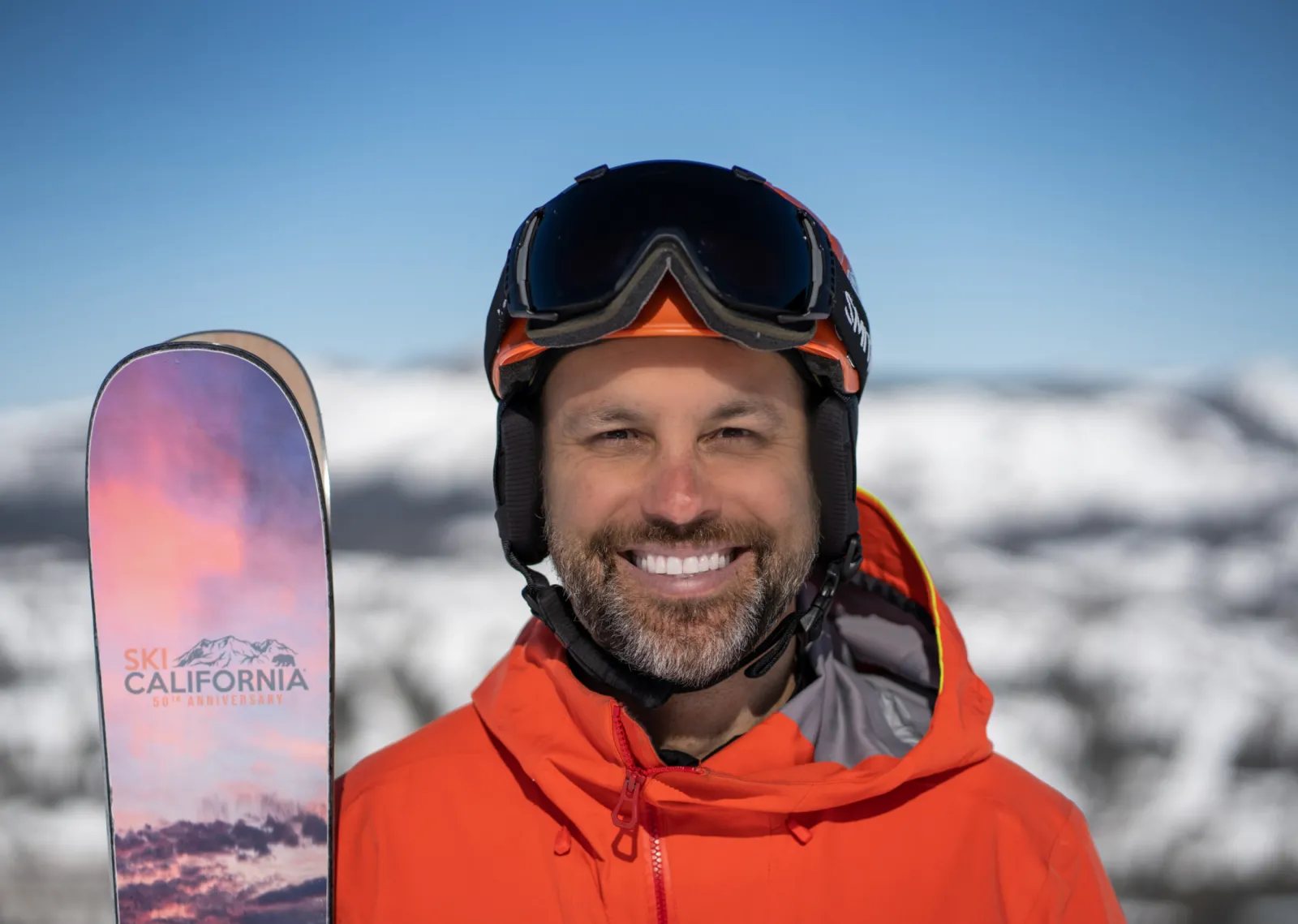Will AI recommend your resort?
AI is no longer on the horizon, it’s here and for resort leaders the real question is how to use it to stay ahead. Guests are already leaning on AI to research destinations, make decisions, and even book experiences. That shift has major implications for outdoor and travel brands, where visibility inside AI models could make the difference between being recommended or overlooked.
Few in the ski industry have moved as quickly to understand and act on this shift as Michael Rueckert, Head of Marketing at Snowbasin Resort and founder of Centium. What began as curiosity has grown into a platform now helping more than 40 outdoor brands understand how AI models see them and how to influence those results. We sat down with Michael to explore his journey, the insights he’s uncovered, and what resort marketers should be doing now to shape their AI visibility.
Origin: What led you to become such an early adopter of AI technology?
MR: Anyone that has worked with me knows that I’m both highly analytical, curious, and competitive. While I followed my passion into sports and outdoor marketing, I’ve always had a passion for technology. Centium has been the perfect intersection of those things.
AI is an innovation that demands attention. For me, it comes down to a fundamental belief that it is going to be massively disruptive, and I want to be on the winning side of this innovation. I believe those who embrace technology to become better performers will define the future, whether that is by working smarter, faster, or adding entirely new skillsets. I think a lot of people are fearful of AI and place it as the T in their SWOT analysis. For me, it has always lived in the O category.
Origin: Many outdoor industry marketers are still trying to wrap their heads around how AI will impact travel and outdoor recreation decisions. When did it click for you that platforms like ChatGPT would fundamentally change how people research outdoor destinations and make purchasing decisions?
MR: For me, it all clicked once we saw AI models integrating live web searches. That’s when results had become strong enough to be truly actionable by a customer.
Google Gemini was the first to do this at scale when it released Deep Research in December of 2024. I joined their paid plan just to try the feature and was blown away. I asked it to rank Utah ski resorts and watched it index hundreds of webpages and realtime to make a decision. That’s when I had the idea to build Centium. If we can see where AI is looking and what they consider important, we can position ourselves to influence that outcome.
Early insights
Origin: Once you realized the potential impact, what were some of the first things you discovered when you started testing how AI models responded to queries about ski resorts and outdoor destinations?
MR: Early work revealed key insights that we had acted on immediately. Initially, it became quite apparent of the delayed learning that AI models had and that present day outputs are largely a consequence of past efforts. As a rapidly growing brand in the ski industry that was ranked No. 1 by SKI Magazine, Outside and USA Today at the time, our recommendation rate in prior AI models didn’t match what the brand had grown into. We knew we needed to address this.
We also were able to see how AI learns and what it considers important quite early. Things like industry media mentions, positive user reviews, rankings and accolades. We adjusted our strategy last winter to place more emphasis in these areas and have seen a measurable gain with an 86% increase in our recommendation rate in our most important segment.
Building Centium.ai
Origin: Most marketers would have identified this problem, maybe run a few manual tests, and then moved on to other pressing deadlines. What drove you to actually build a comprehensive platform to solve this at scale?
MR: I was initially driven by curiosity. It felt like a bit of detective work, uncovering for the first time where these models were looking and what influenced their decisions. I quickly went from measuring 25 prompts, to 100, to 1,000 and getting my hands on as much data as I could.
At the time, AI visibility wasn’t a mainstream conversation so I felt like I was onto something big before the market realized what was coming. There weren’t really solutions at the time to understand this, so I saw the opportunity to build something innovative to solve what marketers like myself would be looking for.
Since then, it has been a race to learn and build as quickly as I can, spending my nights and weekends creating something that has now helped 40+ brands.
Origin: Take us through the evolution of Centium - how does a resort marketing director end up developing a SaaS platform?
MR: Centium is truly an AI platform, built using AI-powered technology to measure AI. It started as spreadsheets, which eventually grew to PDF reports, which eventually evolved into a dashboard, and now has become an interactive platform with automated data feeds flowing into it. While I have exposure to coding and consider myself tech-savvy, it has been a journey that requires an immense amount of conceptualization, self-teaching, patience, and debugging along the way.
If you take advantage of the latest developments in technology, you can really accomplish some incredible things. AI is advancing at such a rapid pace that it’s very important right now to stay current with the latest tools and trends, because what is possible in 2025 couldn’t be done in 2024.
Content strategy evolution
Origin: How should outdoor brands be thinking about content creation differently in an AI-first world? Is it still about creating content for humans first, or has that balance shifted?
MR: It’s a bit of both now, but good human-focused content creation should continue to be your primary focus and will benefit you most in AI models. The most powerful signals we’re measuring are very human driven, whether it be media coverage or a reddit conversation.
However you now also need to optimize specifically for AI indexing. For example, one of our tactics has been to retroactively issue press releases for any positive media mention over the past several years. We know that AI models consider media endorsement important in their decision making process, so we’ve strived to leave a larger digital footprint to lead them to the conclusion we want. Old content like that clearly isn’t driven for humans and is AI focused, but we’ve seen those efforts work and drive citations in our research.
Origin: What types of content seem to perform best for AI indexing in the outdoor industry - detailed guides, news coverage, user-generated content, expert reviews?
MR: We’ve worked with over 40 outdoor brands thus far and have seen a few clear themes for all. The most impactful way is being included in the “best of” lists by your industry's most authoritative outlets. These are consistently the most cited webpages in any data set that we have done.
Additionally, user reviews are always a top knowledge source for AI models. They find those in a variety of ways, through industry-specific review platforms, TripAdvisor, YouTube, or Reddit. You need to reach key opinion leaders that leave these expert reviews, while also nudging your brand advocates into public channels where AI can find them.
Origin: Are there specific publications or platforms that carry more weight with AI models when it comes to outdoor and adventure content?
MR: For ski resorts, we’re seeing SKI Magazine and Powder as top media publications. Also, any data aggregator is indexed heavily like OnTheSnow as a place where AI models can easily understand snowfall and terrain information for the industry.
For outdoor consumer brands, we see OutdoorGearLab, REI and any applicable activity-focused website (like RunnersWorld or BikeRadar) used frequently. The usage fluctuates by brand and whatever their key activities are.
AI models also favor recency in their citation data, typically from the last 30 days. While they greatly favor high authority outlets, we’ll see even obscure blogs reaching high citation rates as long as their content is recent.
Future trends & predictions
Origin: What should outdoor industry marketers be preparing for in the next 12-18 months when it comes to AI visibility?
MR: AI models are advancing rapidly, so what is available in 12 to 18 months is likely going to be very different that right now. I’d suggest being nimble and prepared to adapt to whatever comes your way.
If I had to hypothesize, assume that a far greater amount of your customers will be transacting through AI models and traditional search traffic will trend downwards. I think the future will have personal AI agents that act on your behalf, arranging key decisions like purchases for you to approve while it handles payment and other logistics.
I’d expect AI models to release advertising options soon and marketers likely will be using much of their spend in this new channel. I wouldn’t be surprised to see a revenue sharing model, like Expedia does for hotels, where they take a portion of sales to be included in an integrated transaction flow.
Next steps
Origin: For outdoor industry marketers who are just starting to think about this, what would you recommend as their first three steps?
MR: First, I’d obtain a measurement of where you’re at to have a baseline to build from. Centium can accomplish that, or there are other tools emerging. Although a lot of AI optimization strategies are general and can transcend any business, we see big fluctuations by industry on where AI models look. Once you measure this, it really helps you understand what to do next.
Second, double down on PR. You need authoritative voices talking about you, not just your own content. Focus on getting mentioned in 'best of' lists, gear reviews, and industry publications. Consistency matters to stay relevant year-round, not just in peak season. Whether it’s for humans or AI, these things will be beneficial to your business regardless.
Third, I’d increase your efforts on reputation management and reviews. Audit where you are at currently, build a plan to amplify positive reviews online, and encourage your satisfied customers to talk about you in public channels. Since AI models can’t use your product, they have to rely on what others say about it.
Closing thoughts
Origin: What excites you most about the intersection of AI and outdoor industry marketing?
MR: AI can be a powerful ally if you can convince it to be an advocate of your brand. All of your customers now have an expert guide in their pocket, which can help reduce barriers to making a purchase. This could be transformative for the outdoor industry, which has always struggled with the expertise gap as people want to get outside, but feel overwhelmed by choices.
There is a lot of research showing that AI referred web traffic converts at a much higher rate than traditional channels. AI eliminates friction and could give people the confidence they need to recreate, expanding our market and making the outdoors more accessible.
Origin: Any final advice for outdoor industry professionals who want to stay ahead of this curve?
MR: I’d recommend experimenting with the new technology available today. Simply learning is the first step, so be sure to continue to play in the sandbox with the continuous release of new tools. Whether it’s producing a song, making an AI powered video, or building a prototype for an app that can help you in your personal life, you’re minutes away from creating some extraordinary things.
You are capable of more today than anyone else in human history. Take advantage of these incredible breakthroughs and start building.
“If you want to change something, measure it.” is a quote I love. For anything in life, simply dedicating your focus will naturally lead to actions that drive improvement. If you believe AI is going to be something that could either benefit or threaten your business, it’s worth getting ahead of it by understanding what is happening.
Everyone is learning this day-by-day, myself included. But there's a crucial difference between learning and waiting. The data we have today is enough to act on. By the time the picture is perfectly clear, the opportunity may have passed to get ahead.
The question isn't whether AI will impact your business, it's whether you'll shape that impact or react to it.






